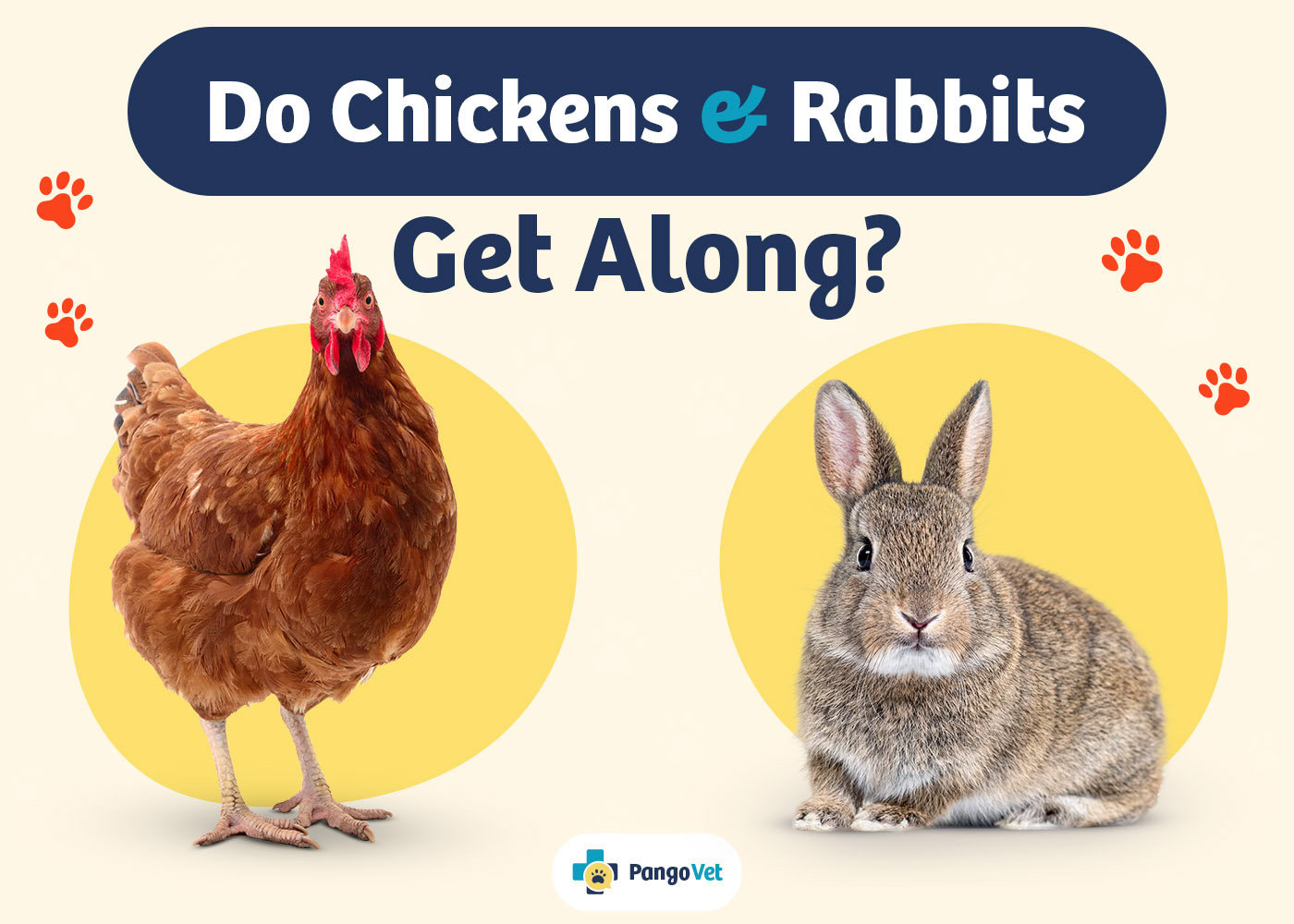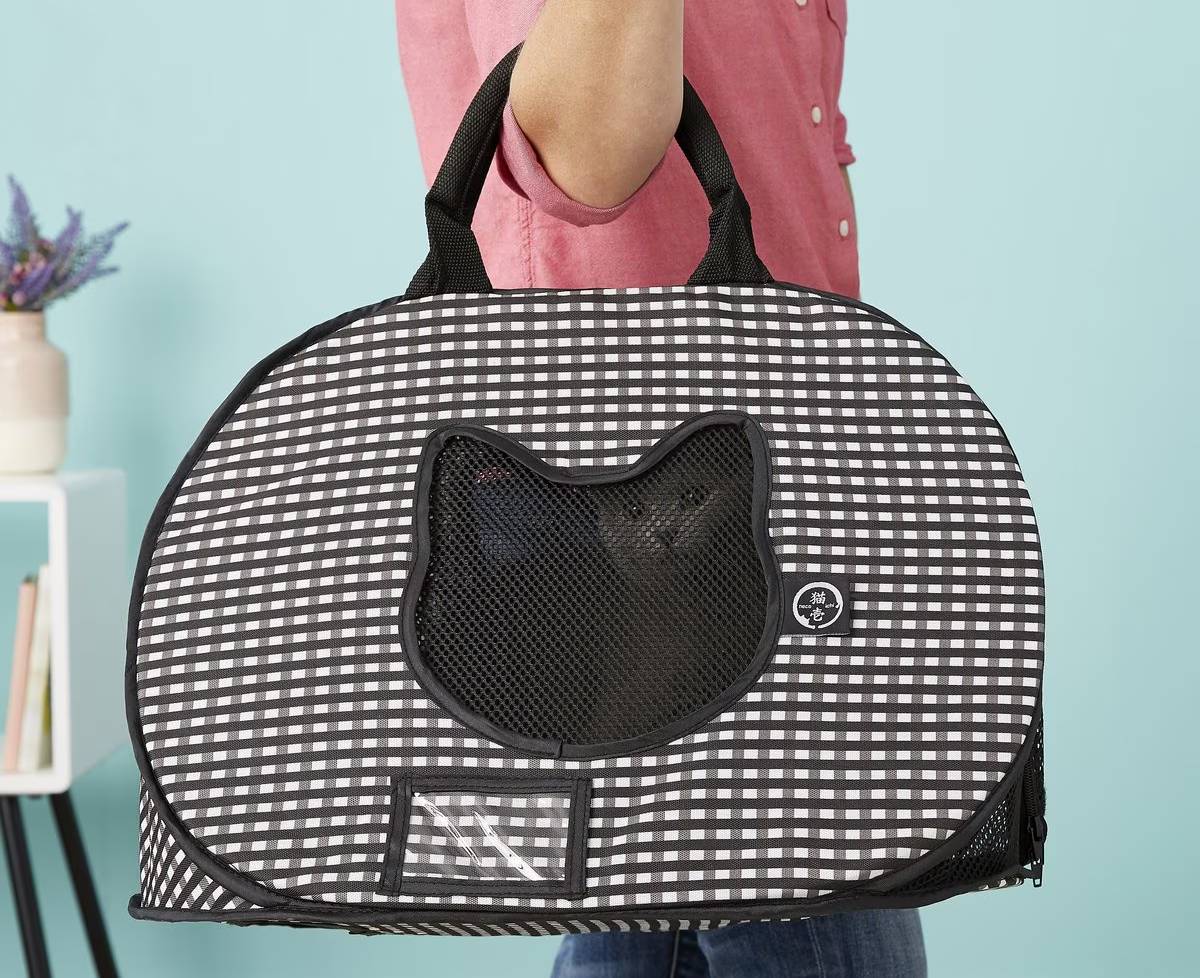VET APPROVED

The information is current and up-to-date in accordance with the latest veterinarian research.
Learn more »Click to Skip Ahead
Chickens and rabbits are popular pets, and while they may not look, sound, or act the same, chickens and rabbits can happily live together as long as their individual needs are met. They can share space in a backyard homestead, a garden, or a ranch, without you having to worry whether one or the other group of animals is suffering as a result.
As with most species, there are steps that you can take to help ensure a more peaceful integration, such as introducing them at a young age and ensuring that male rabbits have been neutered. Here, we have highlighted the steps that you can take to carry out a peaceful introduction between these animals.

About Rabbits
Rabbits are popular with homesteaders because they are small, quiet, and prolific breeders. They produce high-quality manure for use on the veggie patch, and they produce pelts and meat, enabling self-sufficiency and providing multiple profit streams. They do require daily hutch cleaning, and although they might not require as much space as livestock like sheep or cattle, they do need somewhere to sleep and run around.

About Chickens
Chickens are also popular backyard pets. Not just for their charming personalities, but also for the bonus of fresh eggs. Introduce a rooster, and you can even maintain your own flock. The dozens of different breeds offer tons of variety—from free-ranging birds to those with highly sought-after eggs.
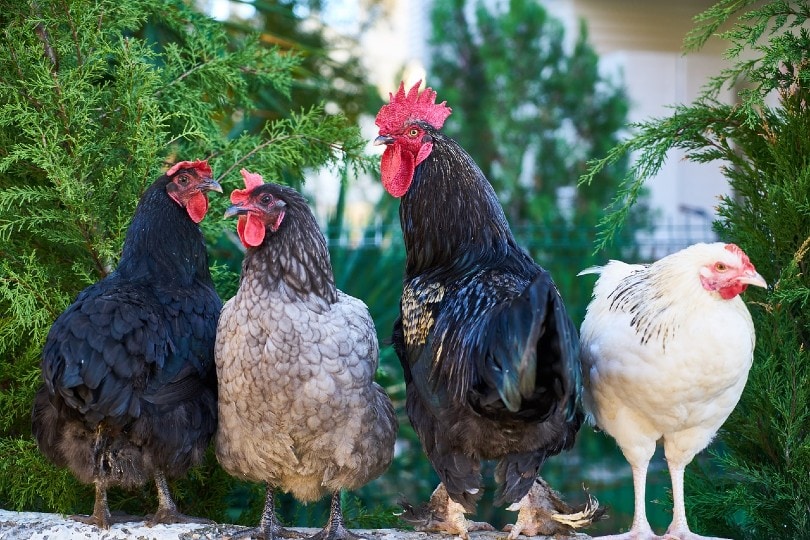
Sociable Species
Rabbits and chickens are considered sociable animals. Neither species does well when kept as a solitary animal; rabbits usually prefer the company of other rabbits, and chickens do best in flocks. While rabbits often bond in pairs or small groups, chickens naturally form flocks with established relationships or pecking orders. In general, it’s best to keep rabbits with rabbits and chickens with chickens, and to provide each with appropriate social companions of their own species
Why Keep Them Together?
The most common reason people consider housing chickens and rabbits together is to save space. Sharing an enclosure can seem like a practical solution, especially if outdoor space is limited. However, while it may appear convenient, it’s important to remember that chickens and rabbits have different needs and behaviors, so keeping them in the same enclosure can sometimes create more challenges than benefits.
- See also: Can Ducks and Chickens Live Together?

Tips for Keeping Rabbits and Chickens Together
Start Young
As with any species or individual animal, your chances of a successful introduction are much greater when both animals are young. Young animals have not developed fear, aggression, or other potentially damaging and prohibitive reactions to the other species. Chicks and kittens are still curious and will want to meet their counterparts and investigate them.
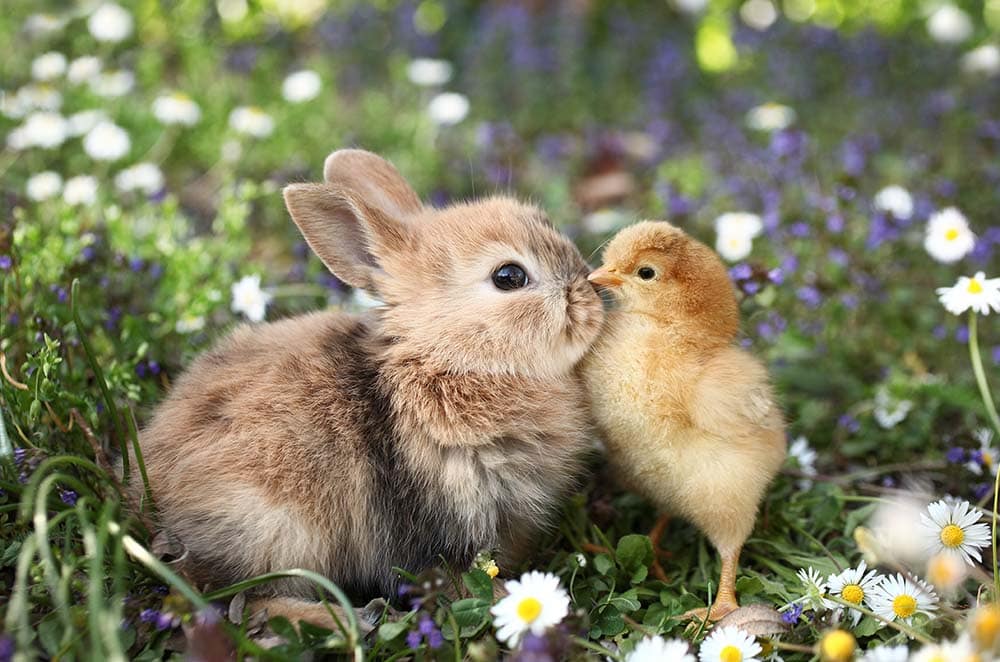
Provide Suitable Shelters
Provide chickens with somewhere to roost and rabbits with hutches or cages to sleep in. This provides both animals with somewhere to get away, and it ensures that all your animals are comfortable and safe. If there are any signs of aggression and you aren’t there to break it up, the animals can retreat to their own sanctuary.
Prevent Chickens From Perching on Top of Hutches
One of the main reasons to prevent chickens and rabbits from sharing the same enclosure is the fact that chicken poop can be dangerous for your rabbits. However, as long as you prevent the chickens from roosting on top of the rabbit hutches, you should be able to avoid any illness or death. Provide roosting spots that are well away from your rabbit hutches, to be on the safe side.
Ensure That Bucks Are Neutered
Male rabbits, or bucks, can be aggressive and territorial when they reach sexual maturity. In some instances they may attempt to mount chickens, something that can injure both animals and cause stress. Neutering helps reduce these behaviors, though it doesn’t eliminate all risks associated with mixed-species housing.

Watch the Rooster
Similarly, the rooster can become very protective. In fact, this is one reason that some owners even choose not to introduce a rooster to their flock. A rooster will protect their hens. This can include protecting them against the perceived threat of rabbits. Try to find some way to keep the rooster at bay, if it does look like he wants to protect the hens.
Ensure That There Are Multiple Animals of Each Species
The old saying goes that birds of a feather flock together. Don’t try to introduce a single rabbit to a dozen chickens or the other way around. Ensure that there is a decent-sized group of both animals. This will give them all some confidence, and it will enable the rabbits and chickens to spend time with their own species, which is essential for their wellbeing.
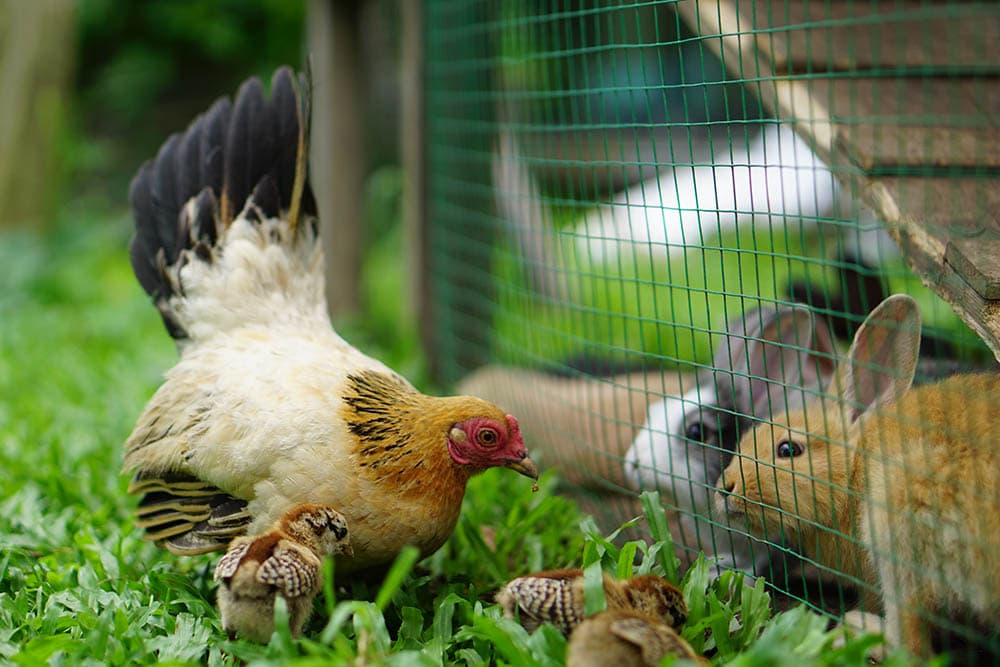
Remove Aggressive Animals
You will have to be diligent, especially when you first introduce the animals, to ensure that they are not being aggressive with one another. If there are any signs of aggression, separate the animals. You can try to introduce them again, but you may, at some point, have to accept the fact that they will not live happily together. It may be necessary to provide them with their own space and their own area if this does happen.
Introduce Them Gradually
Don’t rush any introductions or time that the animals spend together. Let them be near one another initially, ideally without being in the same confines. This will give all the animals a chance to get to know one another’s smell and what they look like, without the risk of aggression. Once they get used to being near other animals, allow them to spend a little time together. Look for signs of comfort as an indication that things are going well. Rabbits, for example, will usually lie down if they are comfortable in their surroundings.

Can Chickens and Rabbits Live Together?
Chickens and rabbits can indeed live together, especially if they are given their own hutches and roosting boxes, if they are introduced at a young age, and if you don’t try to rush or force the introduction. This can enable you to save space, and both animals might appreciate the additional company and numbers too. You will never end up with hybrid “rabbens” or “chickits,” but you could end up with a fairly peaceful and amicable group of homestead livestock.
Featured Image Credit: Milos Batinic, Shutterstock
